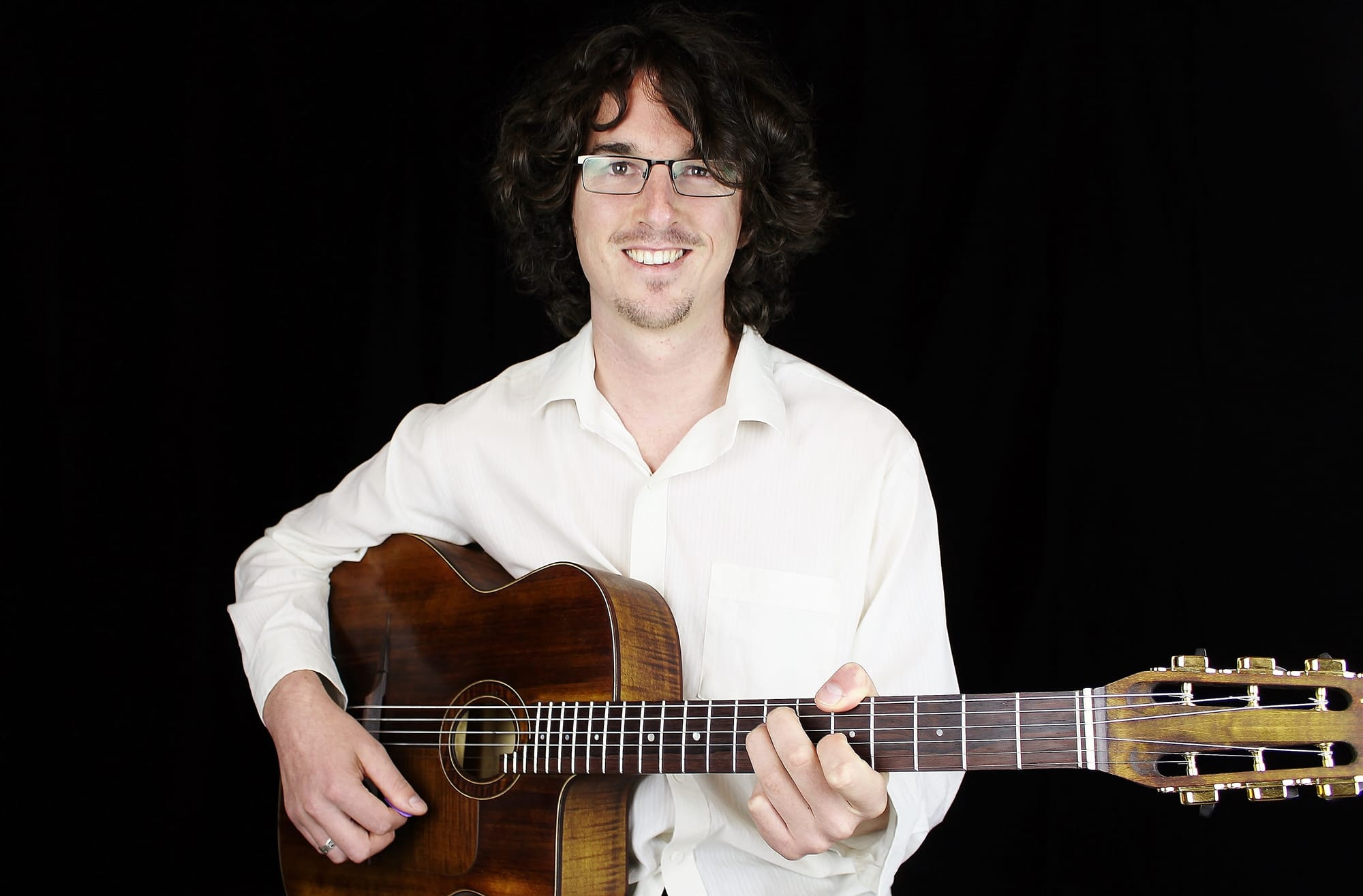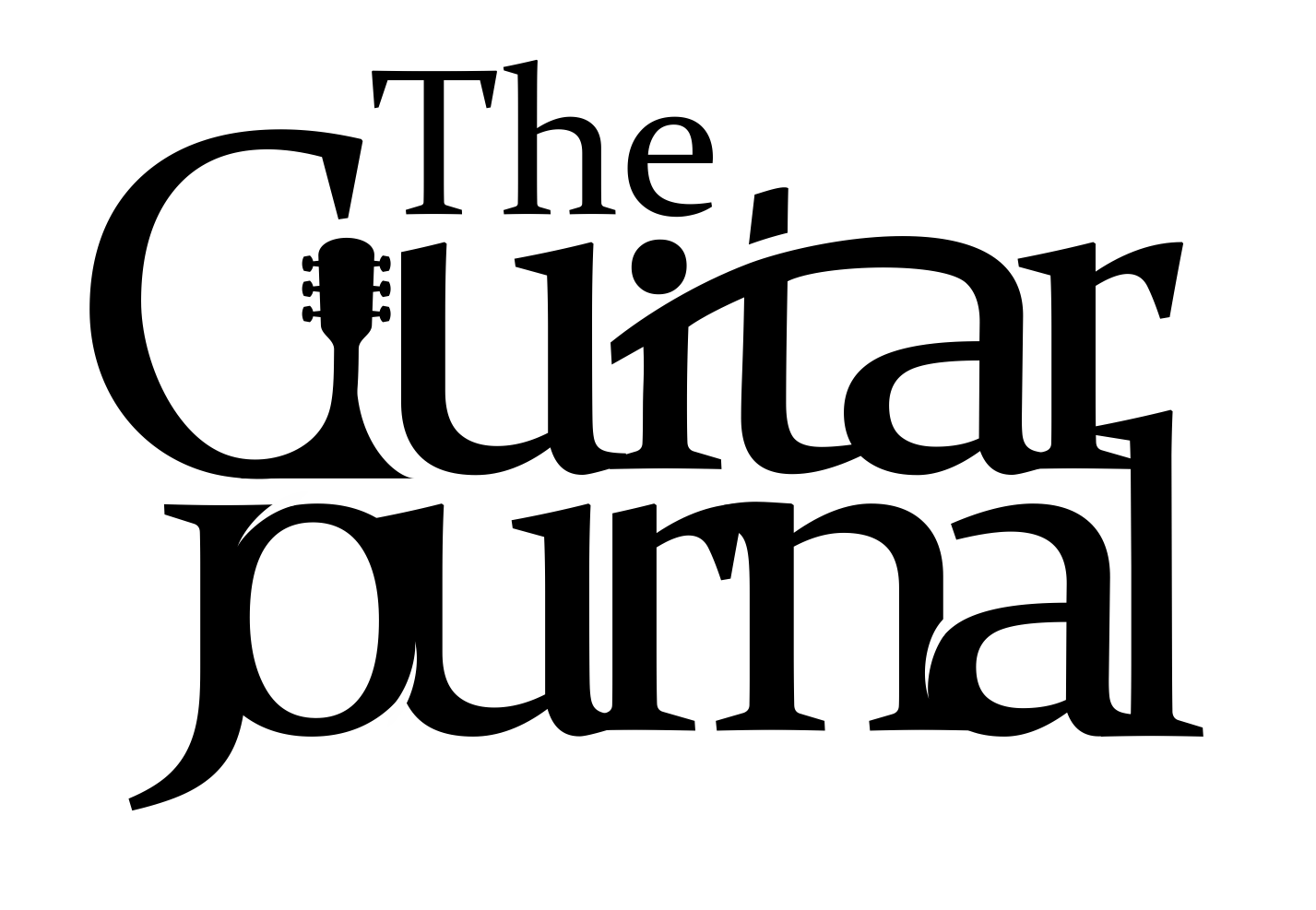Gypsy Jazz Guitar Q & A: Part 3
A series of posts designed to answer common questions about gypsy jazz guitar. From Studygypsyjazz.com’s head tutor, Harry Edwards.
- Gypsy Jazz Guitar Q & A: Part 1
- Gypsy Jazz Guitar Q & A: Part 2
- Gypsy Jazz Guitar Q & A: Part 3
You may also want to start by reading Harry's guest post, "An Introduction to Gypsy Jazz Guitar".
Q1: What are some of the best amplification options for gypsy jazz guitars?
A1: This is a great question, and an important one to address for any gypsy jazz guitarist looking to perform live.
The best sound is of course always an acoustic performance, but there are many gig scenarios (noisy/big rooms) where this simply won’t work.
There are a number of different amplification options you can utilize. Here are the three most common scenarios for live performance, and the best amplification solution I have found available for each situation.
1. Noisy venue/bar – For noisy gigs, I often find that a magnetic pickup, in combination with an acoustic guitar amplifier, works well, and presents minimal if any feedback. There are a number of options available; I use a Peche a la Mouche pickup through an AER compact 60 amp.
2. Concert style/stage performance (without sound technician) – For this type of performance, where you are performing for a listening audience, but are not working with an audio technician, I often opt for a clip on microphone in combination with an acoustic guitar amplifier; I use an Audio Technica Pro 70 in conjunction with an AER compact 60 amp.
3. Concert style/stage performance (with sound technician) – In an instance where you are performing on stage for a listening audience, and you have a sound technician working with you, your best option is to ask for your guitar to be mic’d up.
Have a discussion with the sound technician in advance of the gig so that they can bring a microphone suitable for acoustic guitar to the performance. The technician can then sort out any feedback issues arising from this method of amplification during your sound check.
Q2: What is the meaning of the word ‘Manouche’ when referring to Jazz Manouche?
A2: Gypsy jazz (also known as Jazz Manouche, gypsy swing or hot club jazz) is a style of jazz music generally accepted to have been started by the gypsy guitarist Jean “Django” Reinhardt in and around Paris in the 1930’s.
Because its origins are in France and Django was from the Manouche Roma clan (although his frequent accompanists, and later solo performers/band leaders the Ferret brothers were not Manouches but Gitan Roma) it is often called by the French name, “jazz manouche”, or alternatively, “manouche jazz”, even in English language sources. This term, along with “gypsy jazz,” is now commonly used when referring to this style of music.
Romani people in France, generally known in spoken French as “gitans”, “tsiganes” or “manouches”, are an ethnic group which originated in Northern India.
Romani people are typically classified into three groups:
- “Roms”, referring to Romani who come from territories from eastern Europe.
- “Manouches”, also known as “Sinté”, who often have familial ties in Germany and Italy.
- “Gitans”, who trace their familial ties to Romani people in Spain.

Q3: What are the different rhythm guitar styles found in Jazz Manouche?
A3: Jazz Manouche has embraced and explored a lot of interesting sub-styles and rhythms since its inception in the early 20th Century.
Please find below a list of several common rhythms in this style. I’ll provide some examples of common tunes so you can follow up and have a listen:
- Swing rhythm – Minor Swing, Sweet Georgia Brown, Daphne
- Ballad rhythm – Danse Norvegienne, Anouman, Clair de Lune
- Waltz rhythm – Montagne Sainte Geneviève, Chez Jacquet, Choti
- Rumba rhythm – Caravan, Made In France
- Bolero Rhythm – Bolero, Troublant Bolero
- Groove Rhythm – Sunny, Isn’t She Lovely
As you can see, this style of music explores a number of different and interesting rhythms! There are others too.
If you’d like to study gypsy jazz swing rhythm guitar, please consider checking out the online course Rhythm Guitar Fundamentals at Studygypsyjazz.com
All the best, I hope you found this month’s Q & A useful!

Harry Edwards (Head tutor @ Studygypsyjazz.com)
